Power meter analysis: Kwiatkowski's World Champs win
We analyse Michal Kwiatkowski's power data from his solo breakaway victory at the 2014 Road World Championships
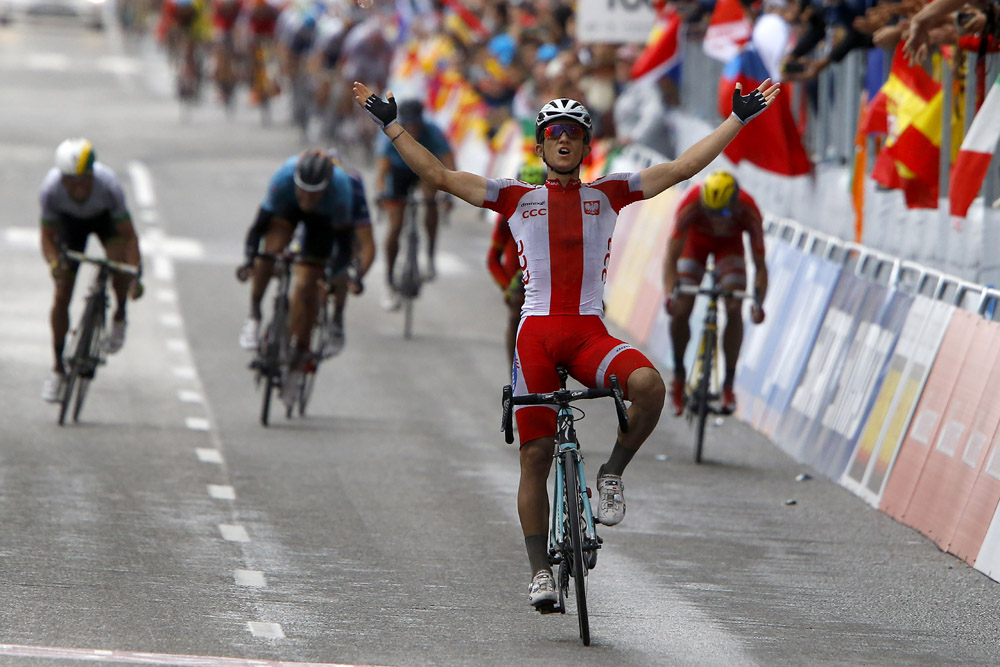
Michael Kwiatkowski wins the men's road race at the 2014 World Road Championships. Photo: Graham Watson
Words by Andrew Hamilton
After more than six hours in the saddle in the World Championship Road Race 2014, Poland’s Michal Kwiatkowski stormed to victory after launching a daring attack in the final kilometres, first bridging the gap to the lead group then breaking away from that group in a solo effort for the finish. With a total distance of 254kms and 4,200m of climbing, the 14-lap course was hugely challenging for all of the riders. However, a closer look at Kwiatkowski’s Quark power meter data (courtesy of Omega Pharma – Quick-Step) reveals just how superb his feat was.
Are the numbers impressive or astounding?
At first glance, his power figures for the race as a whole, while impressive, might not seem out of this world:
- Average power output of 240 watts (3.54 watts per kilo of bodyweight - W/kg)
- Peak 1-hour power of 300 watts (4.42W/kg)
- Average heart rate of 148bpm
- 5,490 calories burned
For example, a reasonably fit 80kg club rider knocking out a 10-mile time trial in 26:00 minutes needs to sustain an average power output of around 240 watts – ie not so very different. But that’s where the similarity ends; not only did Kwiatkowski average 240 watts over 6 and a half hours, it’s his ability (and that of the pros generally) to put the hammer down and keep it down that separates them from us mere mortals.
The numbers in context
The key determinant of success in road racing is ‘maximum sustainable power’ measured in watts per kilo of bodyweight (W/kg). A reasonably fit recreational rider might typically be able to sustain around 6.5W/kg, 3.0W/kg and 2.6W/kg for 1, 5 and 20 minutes respectively. A competitive club rider at cat two level might be able to manage around 8.5W/kg, 4.9W/kg and 4.3W/kg respectively.
To put this in perspective, Contador’s ascent of Verbier (9.7km climb at 7.5%) in stage 15 of the 2009 Tour de France took 20mins 55secs, during which he sustained an incredible power output of 6.8W/kg. Similarly, in the run up to the 2011 Tour, Bradley Wiggins practiced 25-minute climbs sustaining 6.6W/kg throughout.
![Bradley Wiggins training on Colobra[2]](https://cdn.mos.cms.futurecdn.net/gEG38LZZSmpnhMKb7bQiek.jpg)
Maximum peak power for sprinting is also important – for example to ‘jump’ ahead at the start of a breakaway or sprinting for the finish line. Kwiatkowski’s final attack for the line attack started after nearly 6.5 hours in the saddle and lasted around three minutes. One minute into the attack, he was powering along at 706 watts (10.4W/kg) and he sustained over 500 watts output for the entire attack – that’s over 7W/kg. It’s this ability to get the hammer down and keep it there even after hours of sapping racing that marks the pros apart.
Get The Leadout Newsletter
The latest race content, interviews, features, reviews and expert buying guides, direct to your inbox!
Conserving energy to win
For the first 6hrs 20mins, Kwiatkowski’s teammates worked hard to protect him. By riding in his teammates’ slipstream, Kwiatkowski saved valuable energy reserves – a vital part of his winning strategy. Indeed, data from a ‘middle of the pack’ 2011 Tour de France rider (Chris Horner of Radioshack) shows that in the flat sections, speeds of 40kmh or faster could be maintained at a power output of only 150 watts, illustrating the huge benefit of drafting. Of course, Kwiatkowski had to work much harder up the hills – gravity is no respecter of slipstreaming – but here his relatively svelte weight of 68kg was a big plus, reducing his energy consumption compared to heavier riders.
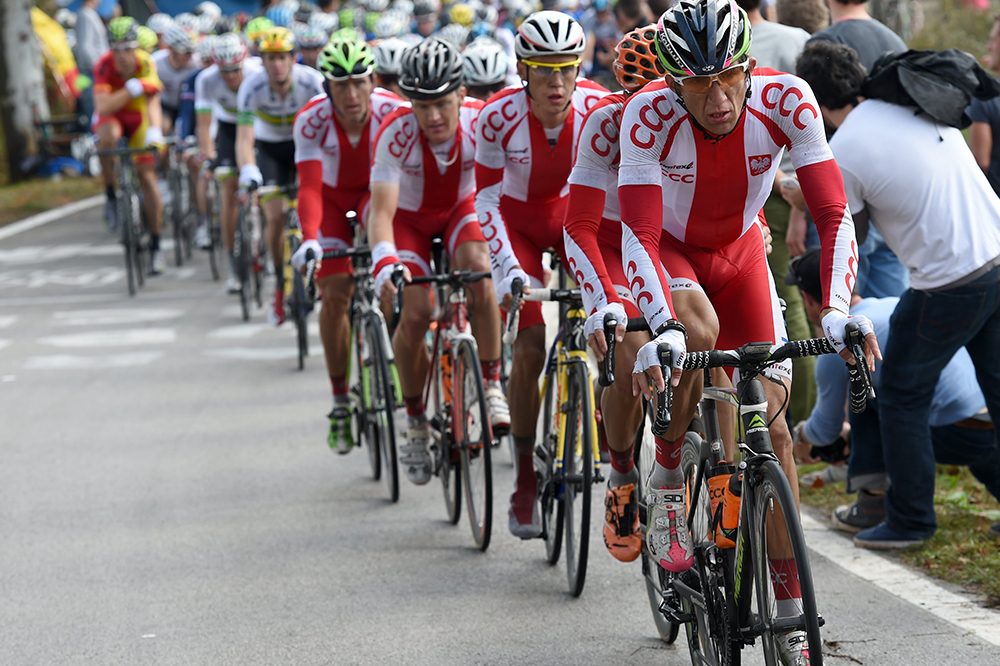
As well as protecting him from wind drag, the team brought Kwiatkowski to the front of the chasing pack, allowing him to descend quickly, carrying as much speed as possible into the bends and eliminating excessive braking and the need to keep re-accelerating.
These tactics enabled Kwiatkowski to significantly reduce his overall power output prior to the big attack, which helped in two ways:
- It enabled his muscles to derive a greater proportion of their energy aerobically - ie without the production of excessive lactate. Although muscles can clear lactate after hard efforts during a race, it invariably comes at a price of greater fatigue later on in the race. Of course, Kwiatkowski’s lactate levels would have rocketed during the final attack but as he was only minutes from the finishing line, this wasn’t an issue!
- It enabled his muscles to burn more fat for energy while conserving precious stores of muscle glycogen – the only source of energy for the very high-intensity effort that was to follow in the final moments of the race.
The decisive attack
With all the right foundations in place, Kwiatkowski launched his attack by jumping away from the main chasing group to catch the lead group. To do this, he unleashed a half-minute burst averaging 436 watts (6.43W/kg) at 53kmh, during which his peak power hit 928 watts – a key point in the race. After catching the lead group, Kwiatkowski took a very short breather. But with only a narrow lead over the chasing peloton that included many of the favourites, he couldn’t afford to sit in the lead group too long. After less than a minute of recovery, he attacked again – this time for the finish line.
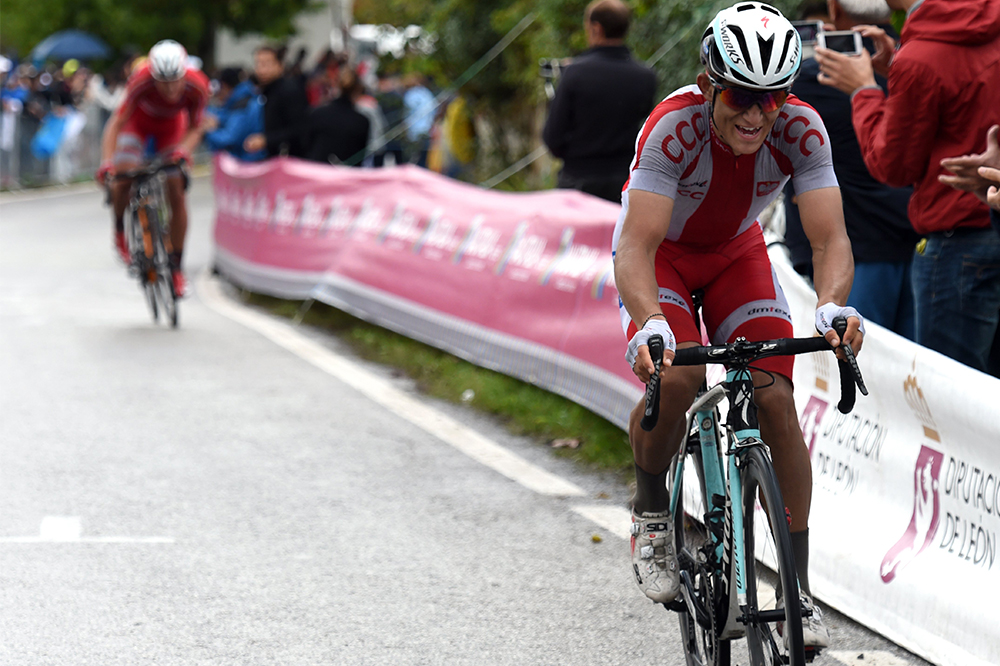
The final sprint
His sprint away from the lead group lasted around 3 minutes, during which he sustained over 500 watts, peaking over 700 watts. Having got away, he kept the pressure on right to the line, sustaining an average power of 415 watts and a speed of 60kmh for the final 1.7km. To produce these numbers at anytime is extremely impressive, and something that most cyclists could only dream of. To produce them right at the end of a 253km, 6.5-hour race through mountainous terrain however, is testament to Kwiatkowski’s extraordinary ability.
http://www.youtube.com/watch?v=OjS9dnoIUZ4

Thank you for reading 20 articles this month* Join now for unlimited access
Enjoy your first month for just £1 / $1 / €1
*Read 5 free articles per month without a subscription

Join now for unlimited access
Try first month for just £1 / $1 / €1
Founded in 1891, Cycling Weekly and its team of expert journalists brings cyclists in-depth reviews, extensive coverage of both professional and domestic racing, as well as fitness advice and 'brew a cuppa and put your feet up' features. Cycling Weekly serves its audience across a range of platforms, from good old-fashioned print to online journalism, and video.
-
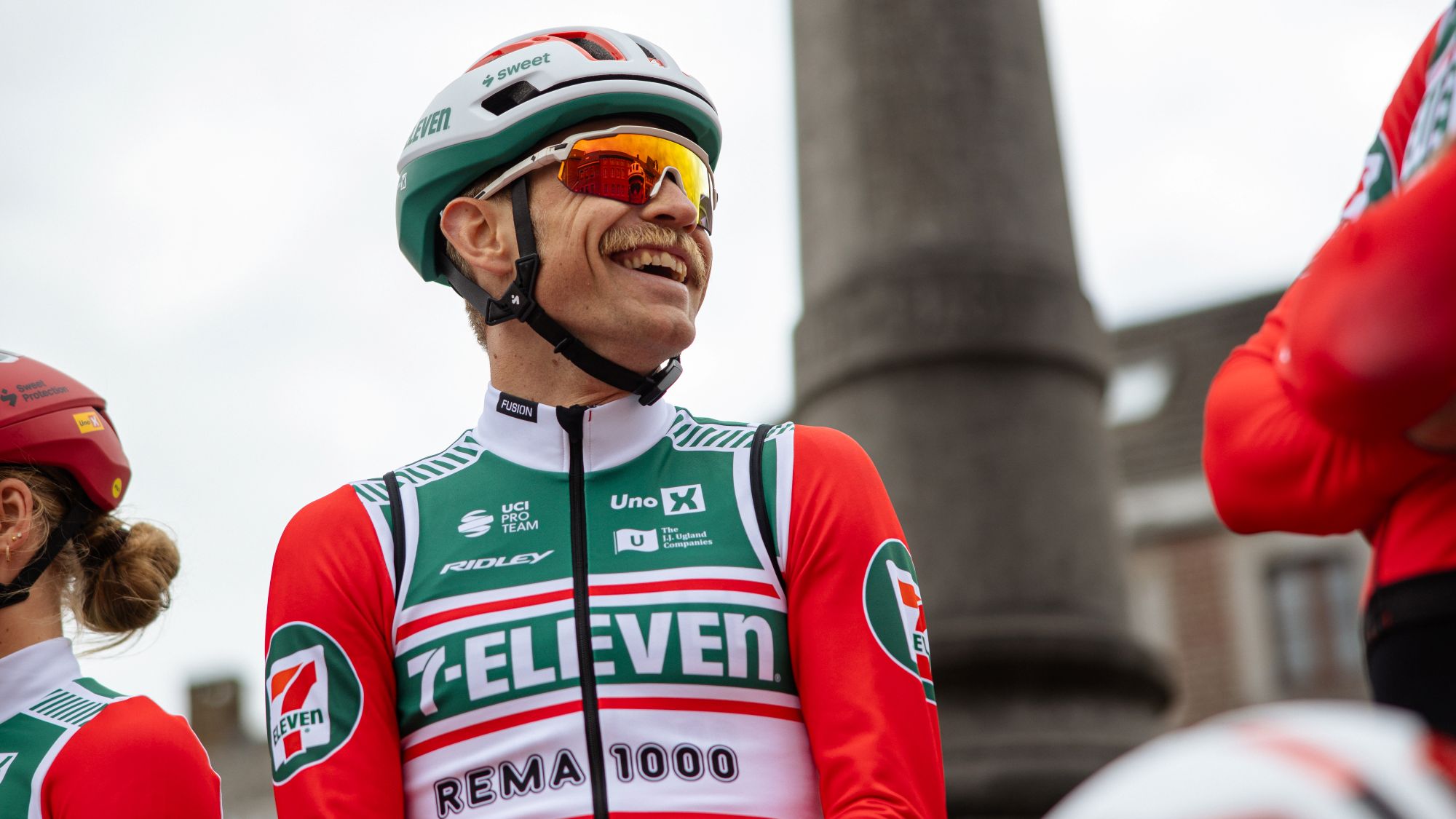 7-Eleven returns to the peloton for one day only at Liège-Bastogne-Liège
7-Eleven returns to the peloton for one day only at Liège-Bastogne-LiègeUno-X Mobility to rebrand as 7-Eleven for Sunday's Monument to pay tribute to iconic American team from the 1980s
By Tom Thewlis
-
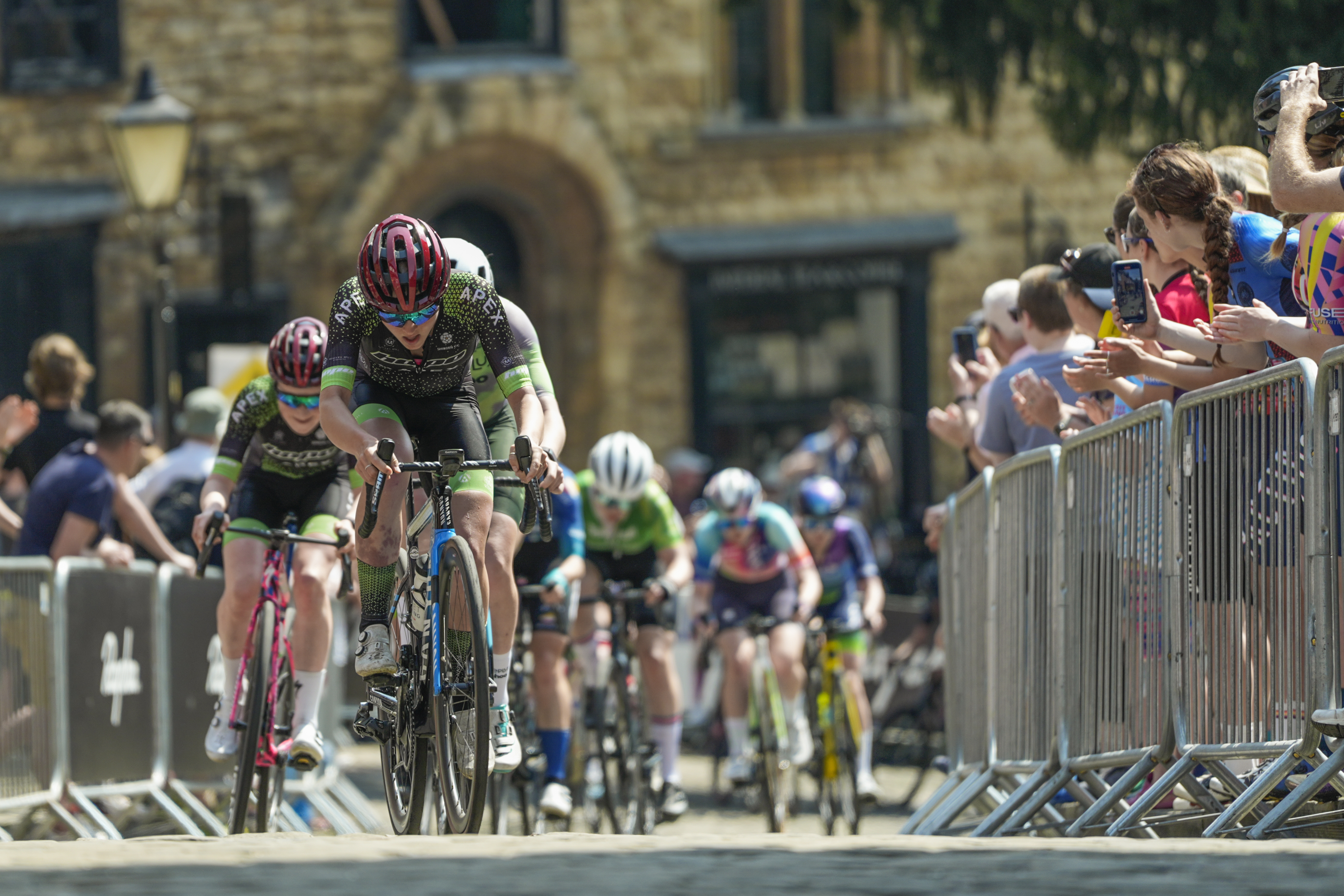 Rapha launches the Super-League, a new British road racing points competition
Rapha launches the Super-League, a new British road racing points competition16 events make up the Rapha Super-League, including crits and road races, with overall winners crowned
By Adam Becket
-
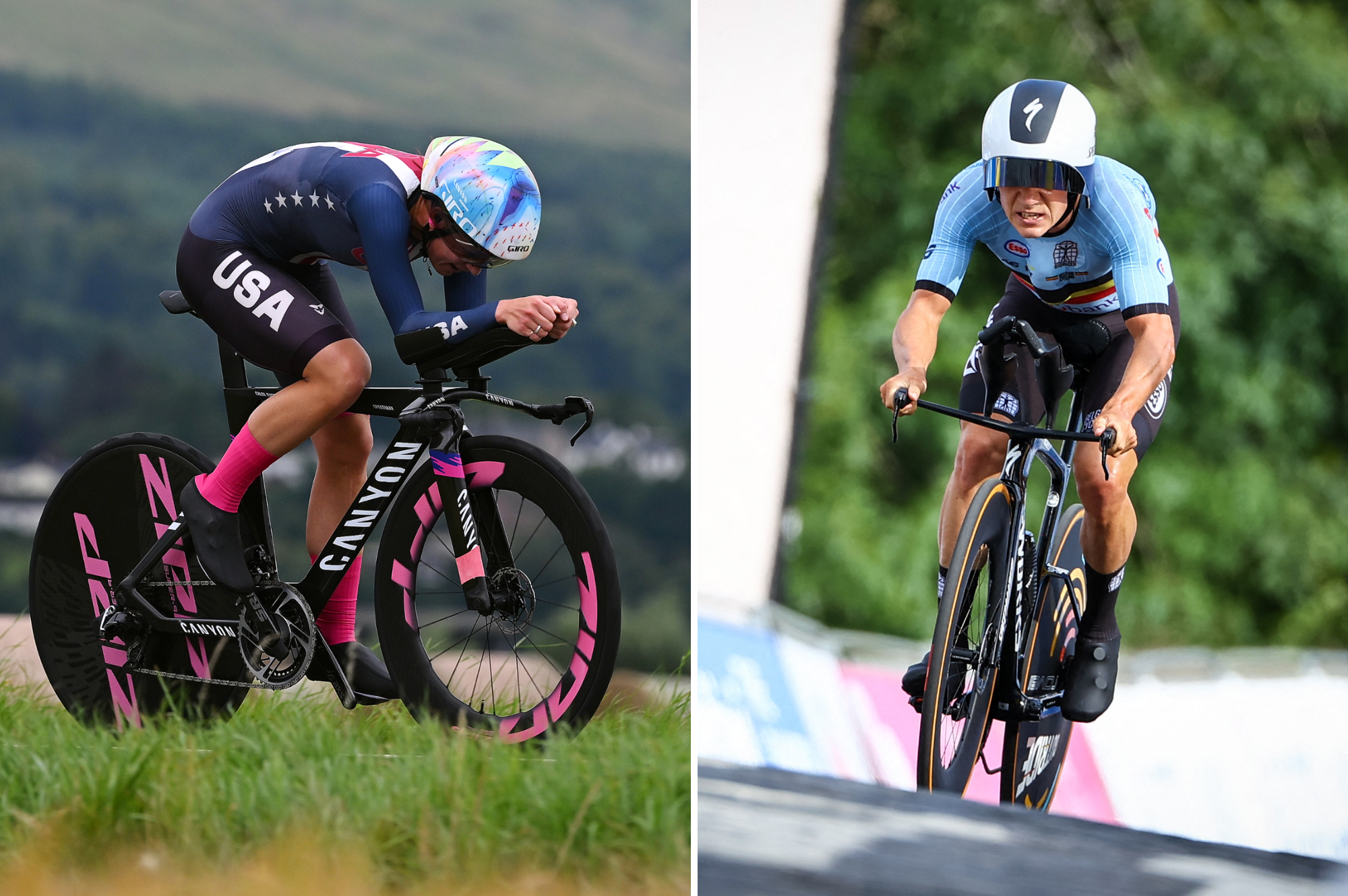 UCI Road World Championships 2024: Elite women's and men's time trial start times
UCI Road World Championships 2024: Elite women's and men's time trial start timesThe full rider lists and start times for the individual time trials in Zurich
By Tom Davidson
-
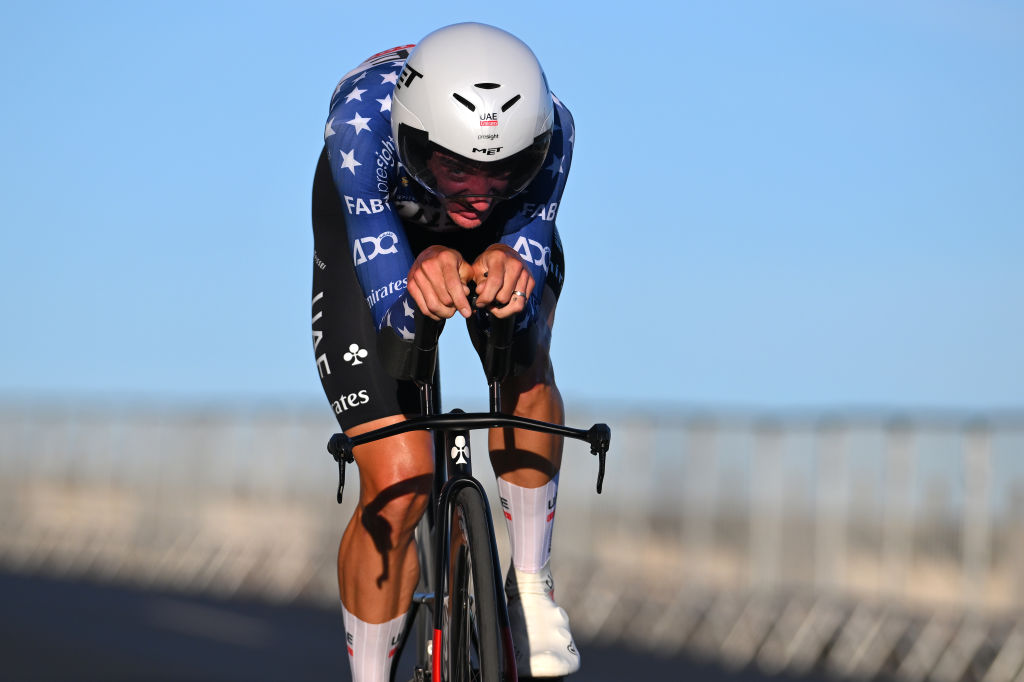 Jorgenson and Faulkner to lead a strong Team USA at UCI Road World Championships
Jorgenson and Faulkner to lead a strong Team USA at UCI Road World ChampionshipsThe 2024 UCI Road World Championships are held in Zurich, Switzerland, September 21-29
By Anne-Marije Rook
-
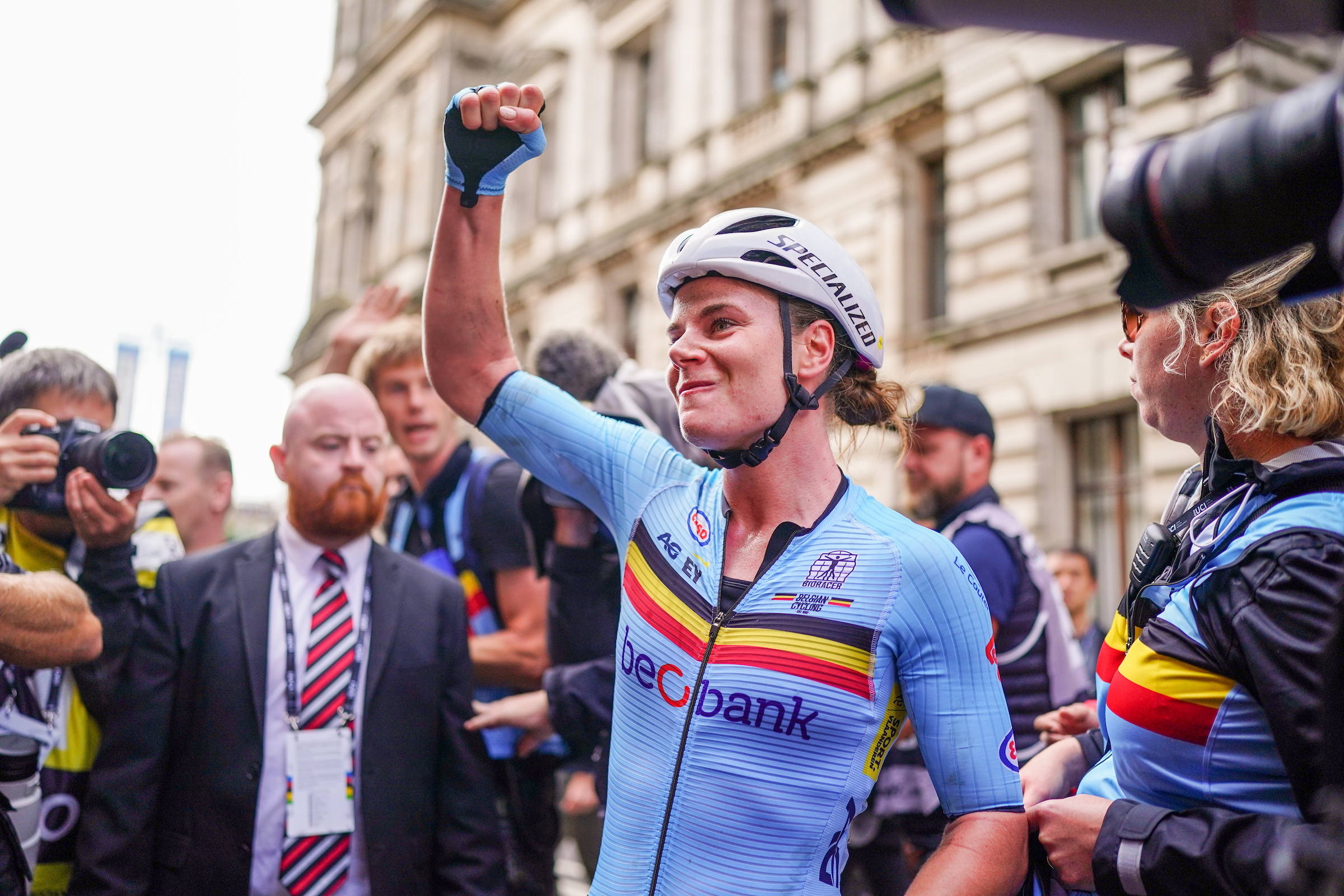 ‘Unprecedented’ television audiences revealed for cycling Super Worlds
‘Unprecedented’ television audiences revealed for cycling Super WorldsFans around the world watched more than 200 million hours in August
By Tom Davidson
-
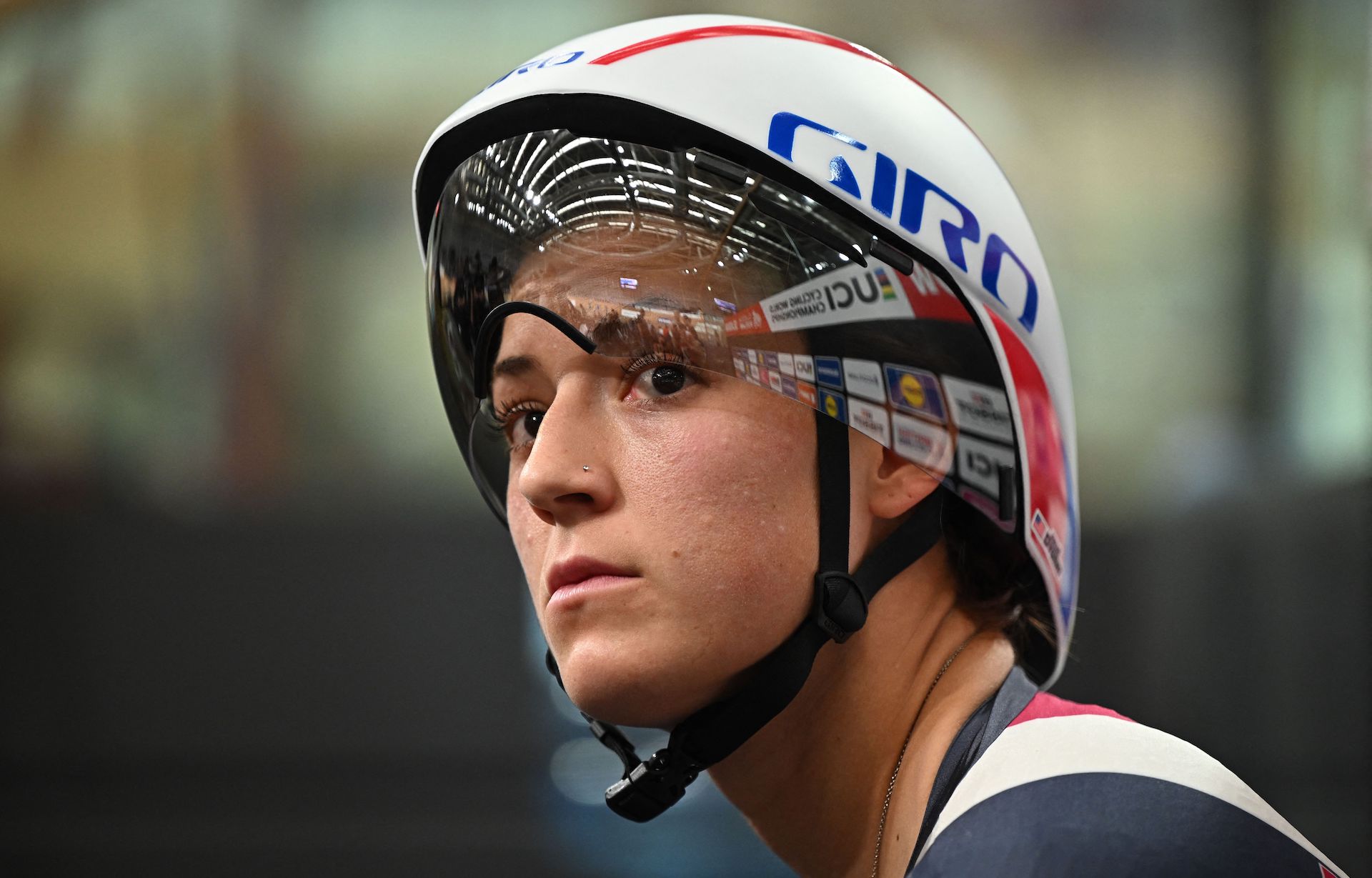 Team USA at Road Worlds: Are Powless and Dygert our best hopes for a medal?
Team USA at Road Worlds: Are Powless and Dygert our best hopes for a medal?Here's who we'll be watching in the rainbow battles in Glasgow, Scotland.
By Henry Lord
-
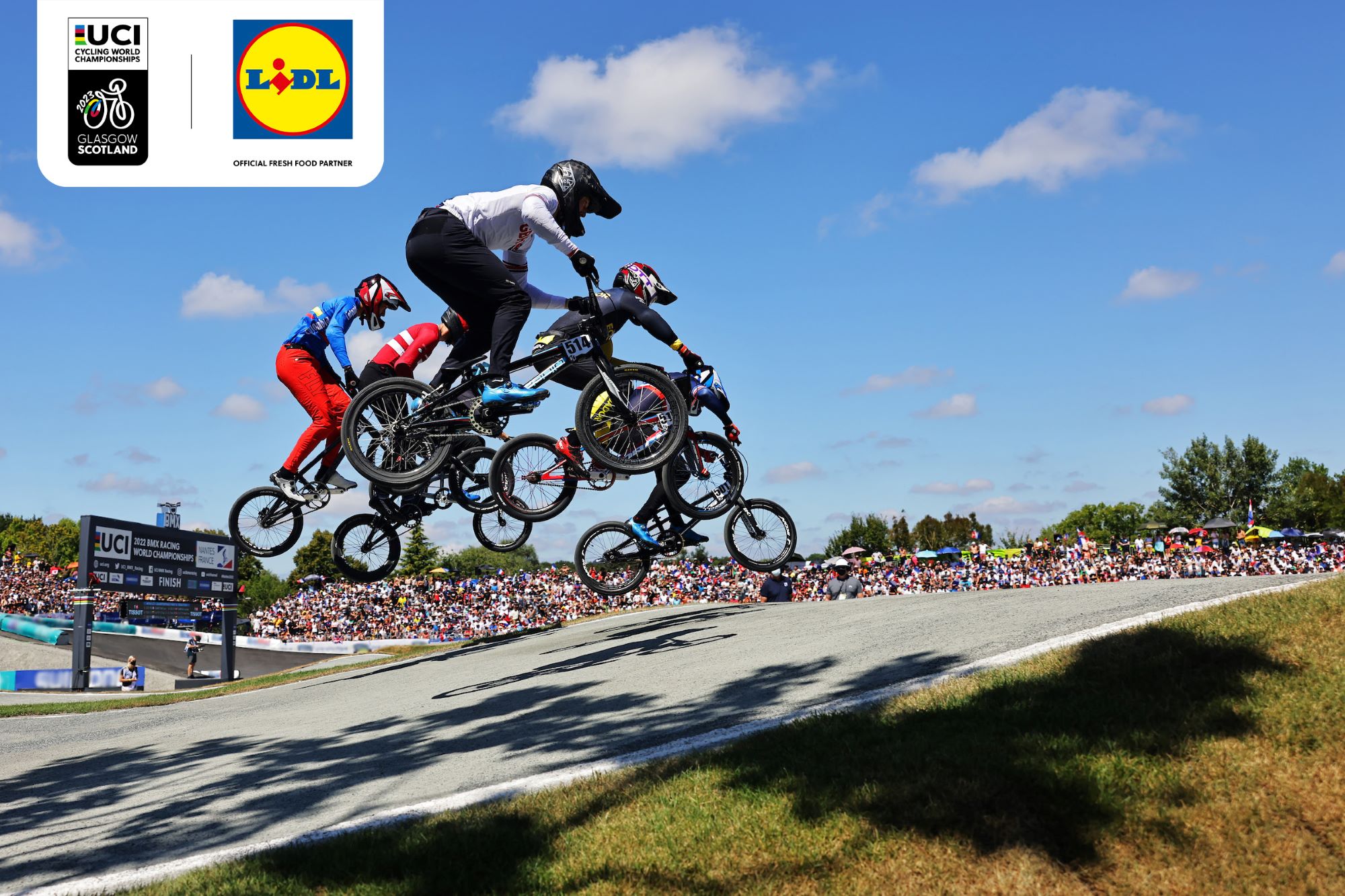 Glasgow UCI World Championships bags Lidl partnership
Glasgow UCI World Championships bags Lidl partnershipSupermarket chain becomes official fresh food partner for the championships taking place in Glasgow in August
By Tom Thewlis
-
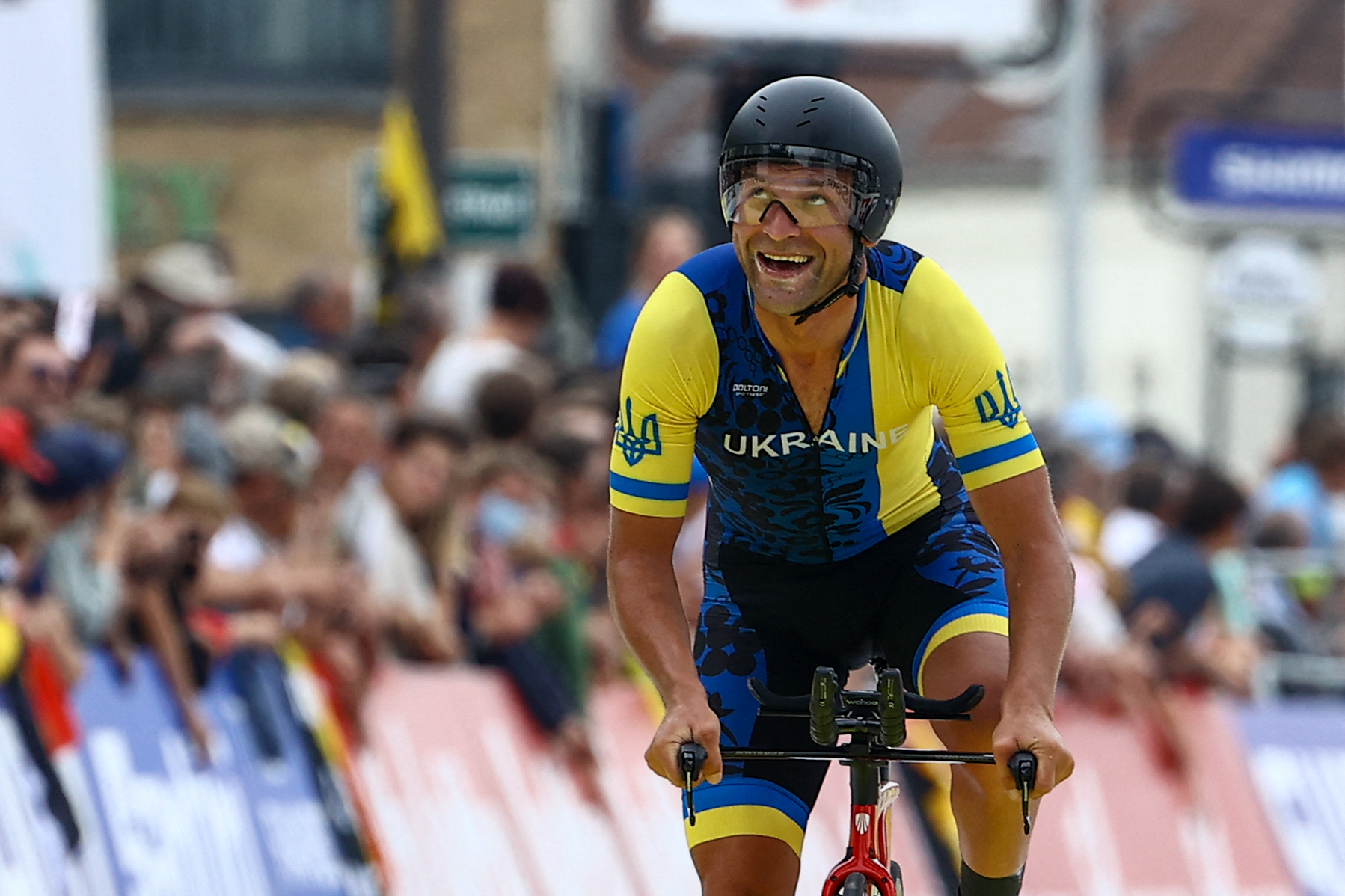 Ukrainian cyclist disqualified from World Championships after blood sample result
Ukrainian cyclist disqualified from World Championships after blood sample resultMykhaylo Kononenko's blood sample revealed the presence of the banned substance tramadol
By Tom Davidson
-
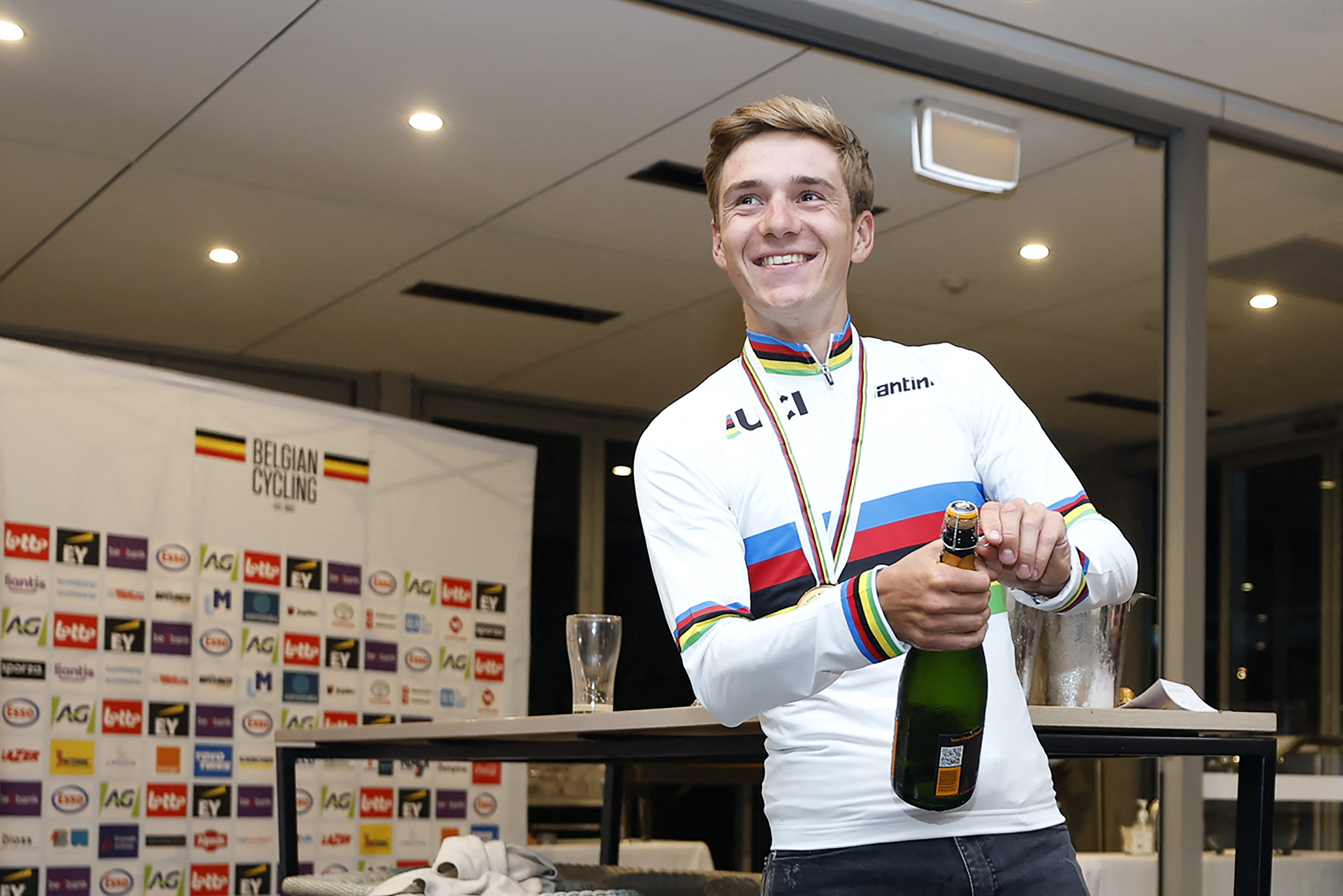 How many calories do you burn winning the World Championship road race?
How many calories do you burn winning the World Championship road race?It’s the equivalent of six margherita pizzas, according to Remco Evenepoel's Strava data
By Tom Davidson
-
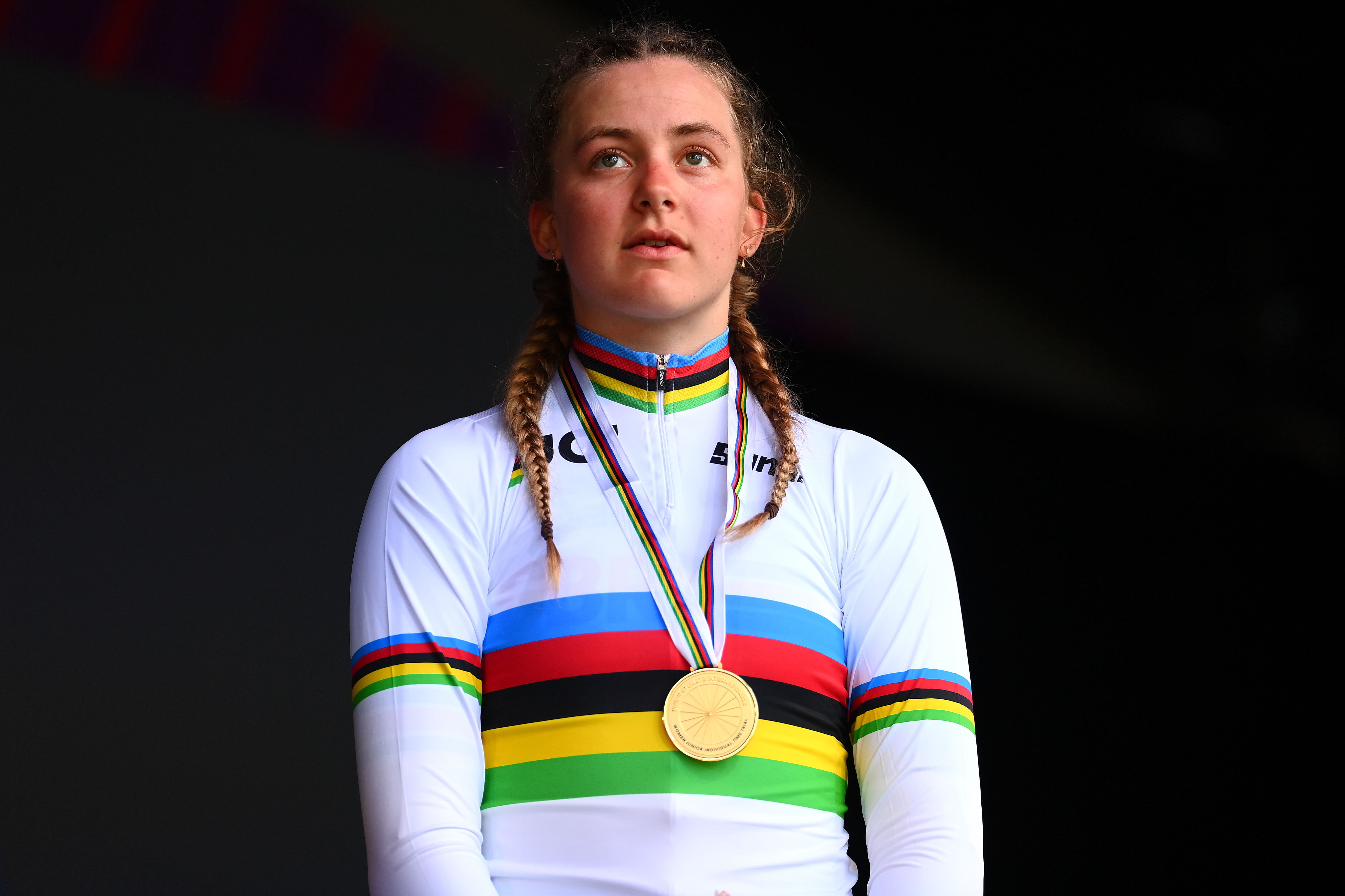 Don’t expect too much from Zoe Bäckstedt, says teenager’s British Cycling coach
Don’t expect too much from Zoe Bäckstedt, says teenager’s British Cycling coachJunior academy coach Emma Trott has warned against piling pressure on the 18-year-old
By Tom Davidson